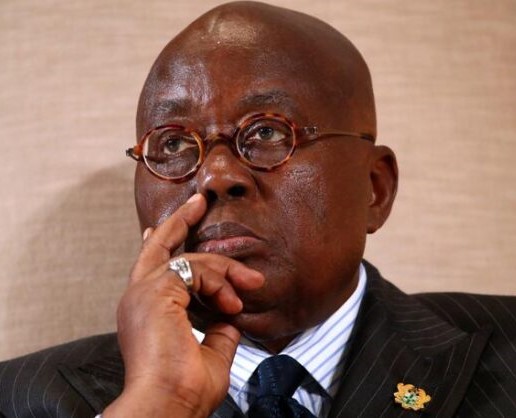As Ghana grapples with pressing economic challenges, the spotlight has been intensified on the remuneration of Article 71 office holders. The President's comments on what we usually call ex gratia reflects the growing public discourse on whether the current compensation aligns with our constitutional imperatives and economic realities.
Ghana is currently under an IMF programme and also hoping to rework debt owed its external creditors after successfully carrying out a domestic debt exchange. The country’s economy is facing significant challenges and may not be able to handle a growth rate as high as 2.8% this year.
Despite Finance Minister Ken Ofori-Atta initially stating that there would be no need for a supplementary budget, mounting fiscal pressures have forced him to cut expenditures by approximately $2 billion. The projected economic downturn in Ghana has led to the revision of key economic indicators. End-period inflation is now expected to reach 31.3%, significantly higher than the earlier projection of 18.9%. Additionally, the balance of payment burden is expected to worsen as Gross International Reserves may only cover about 0.8 months of imports.
Based on Ghana's prevailing economic climate and other factors, President Akufo-Addo has called on a newly inaugurated emoluments committee chaired by Dr. Janet Fofie to focus on recent concerns raised by a section of the Ghanaian populace on whether or not Article 71 office holders are deserving of the ex gratia or monies and benefits paid to them as stipulated by the 1992 Constitution.
This will be at least the seventh emolument committee whose work has always been to determine a thank you package and other remunerations for Article 71 office holders, including that of the president, his vice, ministers and members of parliament.
JoyNews checks from the previous emolument committee revealed the total number of people on the payroll of Article 71 office holders were around 500 and this was as of 2016.
According to the previous committee, chaired by Prof. Yaa Ntiamoa-Baidu, it based on several factors including; the economic circumstance, the Ghana Beyond Aid agenda, public sentiments, political climate, amongst others to recommend that the monthly salary of the president be increased from GH₵29,899 in 2016 to GH₵47,277 in 2020.
As at 2016, the average salary of an Article 71 office holder was GH₵18,211 and that of a Single Spine Salary workers was around GH₵1,128. The difference was in excess of GH₵17,000. In 2010, the average salary of an Article 71 office holder was 14 times higher compared to a worker on the single spine salary structure; it increased to 16 times in 2016 and the gap keeps widening.
The various Presidential Committees on Emoluments of Article 71 office holders subsequent to the Chinery-Hesse Committee have been careful in maintaining a balance between the emoluments of Article 71 office holders and the rest of the public. For example, the Ewurama Addy Committee in 2011 introduced the upward point system providing relativities between Article 71 office holders and other workers on the single spine salary structure.
However, in the process of approving the various emolument committee reports, the system is often disregarded, leading to the pay adjustments for Article 71 office holders that have worsened the inequalities.
In simple terms, there have been significant upward reviews without recourse to the rigorous analysis that went into the proposals put together by the committees. In 2013, Article 71 office holders saw a collective increase of 43% in their salaries, and for the remainder of the period covered by the Edu-Buandah Committee, the pay levels went up by 10% annually spanning 2014 and 2016. In the same period, workers on the single spine were receiving wage awards below inflation, including a freeze on wage increase in 2014; they received a Cost of Living Allowance (COLA) instead. The cumulative effect of these differential adjustments was that while Article 71 salaries saw increases, wages of workers on single spine including nurses and teachers experienced declines in real terms.
This time, labour will be watching and is likely to base their future demands on the recommendations made by the current emolument committee.
Twitter: @isaackofiagyei
Latest Stories
-
Kennedy Agyapong vows to replicate ‘Asian Miracle’ to transform Ghana
6 minutes -
Ngleshie Amanfro police demand logistics, personnel to combat rising robbery menace
16 minutes -
Photos: #StopGalamseyNow protest enters day two
36 minutes -
ASEC condemns ECG’s proposed 225% tariff hike as outrageous and unjustified
49 minutes -
Removed CJ: Sekou Nkrumah alleges NDC’s agenda behind her ouster
1 hour -
TikTok algorithm to be retrained on US user data under Trump deal
1 hour -
Galamsey: Sekou Nkrumah urges gov’t to declare state of emergency
1 hour -
Develop interest in law to know your basic right – Justice Dzamefe urges
1 hour -
Power Victory Chapel rebrands as Impact City Church after 20 years of ministry
2 hours -
I can’t be like my father, but I can be honest about him – Sekou Nkrumah
2 hours -
Security man murdered in Wa
3 hours -
Part II: The big find in Savannah region: was Akamade a hub for Islamic studies?
3 hours -
GTEC sanctions UCC after Vice Chancellor defies retirement directive
3 hours -
Prince Kudufia & Mary Sunday crowned champions of 2025 Osagyefo Criterium
3 hours -
Ghana joins UN fight to protect humanitarian workers in conflict zones
3 hours

